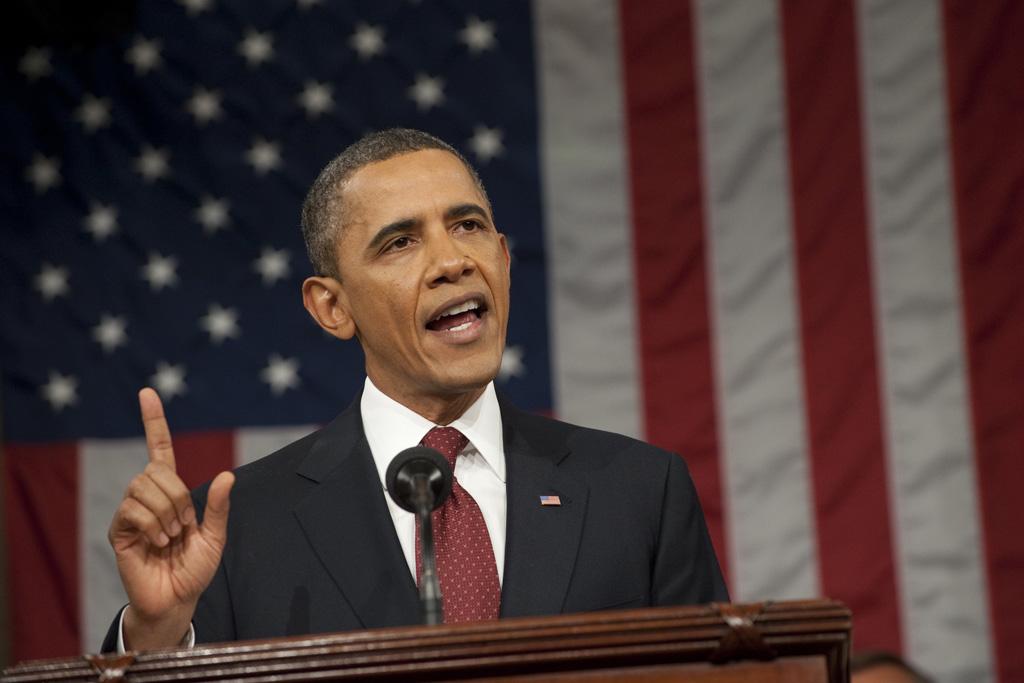State of the Union: Income inequality connects Obama, Kenya and Kansas
US President Barack Obama delivers his State of the Union address before a joint session of Congress on Capitol Hill on January 24, 2012 in Washington, DC.The president called economic inequality “the defining issue of our time.”
In his 2012 State of the Union address, President Obama called economic inequality "the defining issue of our time," reminding his audience that upper-class incomes were skyrocketing and working class opportunities were fading long before the Great Recession toppled the "house of cards."
He echoed this concern in his inauguration speech in Washington, DC last month, saying, "For we, the people, understand that our country cannot succeed when a shrinking few do very well and a growing many barely make it."
As Obama prepares to address the nation again Tuesday evening, he will do so with the knowledge that American income inequality now rivals that of many developing economies. In fact, the inequality level of Topeka, Kansas, just over an hour away from where Obama's mother Ann was born, is almost identical to that of Kenya, the country where his father was born.
State of the Union: In Topeka, Kansas, a 'new generation of poverty'
Glaring class disparity gaining attention ahead of Kenya's presidential election
The connections between Kenya and Kansas don't end there, revealing the global nature of a problem that analysts warn poses a grave threat to economic growth and social stability: runaway income inequality in the majority of the world’s societies.
In Kansas, homelessness is claiming more families than at any time in recent history, part of what Topeka social worker Sheila McDonald called a "new generation of poverty."
McDonald was one of the few African-American students at her university following the landmark Brown v. Board of Education decision that declared the racial segregation of America's public schools unconstitutional in 1954.
Interviewed by GlobalPost correspondent Nichole Sobecki in Topeka, McDonald said, “We have middle class families that are now poor, living below the poverty line. Whereas before it was racial, now it’s economic."
And as confidence in equal economic opportunity has faltered America's breadbasket, so has confidence in its government. Suggestions that President Obama or Kansas' more conservative state government might reverse the tide were met with scoffs.
"Does the government ever help?" asked Adrienne Martinez, the head of a Methodist outreach ministry that caters to Hispanics.
The poverty rate is much higher in Kenya than it is in Kansas, but the disenchantment with government is quite familiar. So is the sense that elites are pulling away from the rest of society. Kenyans are preparing to vote in a presidential election next month, though few believe a new president will make a difference in their everyday lives.
"The government has never helped me, they don't know me," said Philip Mbithi, who survives by scavenging in the trash heaps of Kibera, Kenya's largest slum.
President Obama took the unusual step last week of releasing a YouTube video urging Kenya to avoid deadly tribal violence similar to what followed the 2007 election. The tumult lasted months and cost 1,000 lives while displacing about 600,000 people and devastating the country’s economy.
Observers say this year could be the first time that Kenya's president is elected not along tribal lines, but based on class affiliation. The renewed focus on class is reminiscent of Kansas, more than 8,000 miles away.
In Nairobi, where Obama is loved deeply, the American president's attention is largely appreciated — but may also be inconsequential.
Kojo Acquaisie, a political advisor for the United Nations, was sitting in a bar in Nairobi's elite area called the Junction and told GlobalPost's Sobecki:
“[Obama] has his issues to deal with in America, and our problems, they are for us to solve.”
Every day, reporters and producers at The World are hard at work bringing you human-centered news from across the globe. But we can’t do it without you. We need your support to ensure we can continue this work for another year.
Make a gift today, and you’ll help us unlock a matching gift of $67,000!
